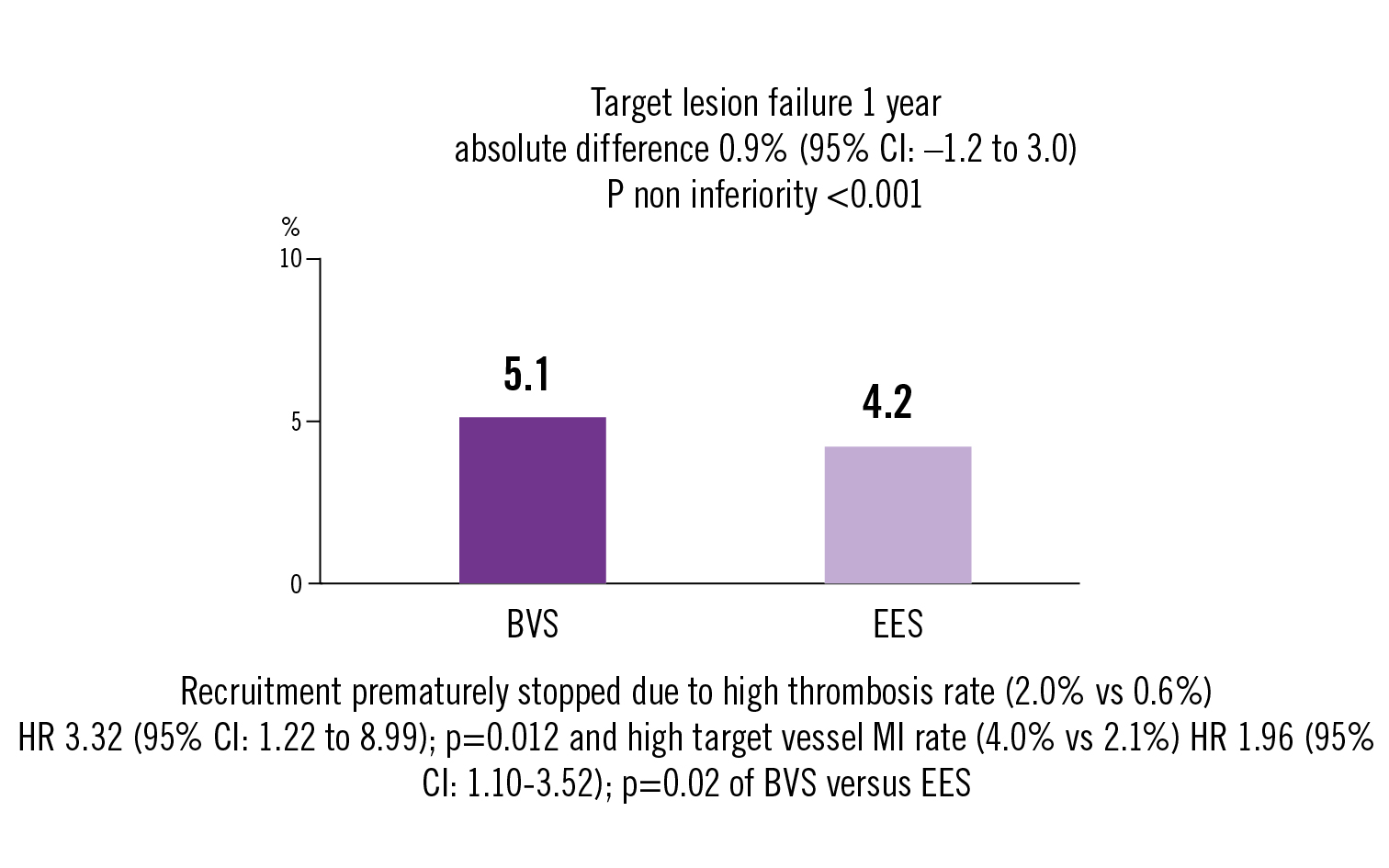Objective
to investigate the 1-year clinical outcomes of bioresorbable vascular scaffold (BVS) implantation compared with metallic DES implantation for treatment of patients with high-risk of restenosis
Study
prospective, single-blind, multicentre, non-inferiority randomised trial
Population
patients with symptomatic heart disease and high-risk of restenosis
Endpoints
target lesion failure as composite of cardiac death, target vessel MI or clinically indicated target lesion revascularisation at 1 year


Conclusion
BVS was non-inferior to EES at 1 year in terms of target lesion failure for treatment of patients with high-risk of restenosis. The risk of stent thrombosis and target vessel MI was significantly higher in BVS treated patients
Smits et al. EuroIntervention. 2020;16:645-53



